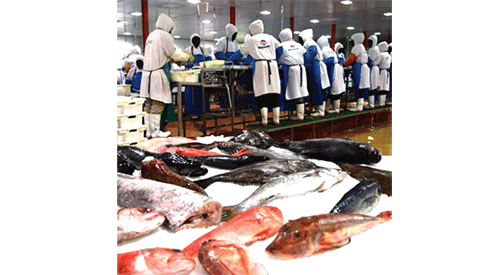Pinehas K Pinehas
Fishermen contribute greatly to the growth of the country’s fishing industry by sacrificing a lot of their time going out to sea. The fishing industry consistently remains one of the most crucial sectors for Namibia’s economic growth, mainly because of the high employment opportunity potential the industry has.
Fishermen, one of the most crucial role players in the sector, contribute to the growth of the fishing industry. These men and women dedicate a significant amount of time away at sea ensuring fish are available for the local and export markets.
Mathew Lungameni who has been a fisherman for some time sat down with this publication to talk about his work:
“I spent over 26 years working as a fisherman and the highest number of days I have spent out at sea is 120.”
Lungameni started out in the fishing industry as a general worker at a fish processing factory and worked his way up into working on a fishing vessel.
“I started off working in a factory whose proprietor owed a vessel, and thus through learning from more experienced workers on the job, I became a fisherman,” said Lungameni who added that his dedication to the profession is high.
“There is no specific starting time for work at sea. It all depends on the population and species of fish at a particular location… you work when there is fish and for as long as you have to.”
Risks
Working in the ocean comes with its own challenges such as the harsh weather conditions and an uncontrolled amount of sea sicknesses including drowsiness, vomiting and experiencing headaches.
“The weather at sea can sometimes become so harsh that people on board vomit or get unpleasant headaches …” This usually occurs on the first day out at sea and for others it lasts for as long as they are out at sea. Another not so familiar risk is of vessels colliding. This became part of the conversation when Lungameni touched on the harshness of the weather.
“A vessel in the ocean is not easy to control like a car on land during rough weather. At one time we collided with another vessel due to harsh weather conditions which had forced one of the vessels to steer off course,” he said.
Family
Fisherman often find themselves spending days and weeks, if not months, out at sea. This can be considered a very long time to be away from families, but fishermen get around this through communicating “…via email or WhatsApp depending on the availability of network signal. We also use the telephone line on board,” he said further explaining how they filled the void.
“It’s not easy, especially for a married man, but what can one do if you have a family to support?” he asked.
These are the kind of characteristics of the people on whose shoulders the Namibian fishing industries and to extent the Namibian economy as a whole rest.


